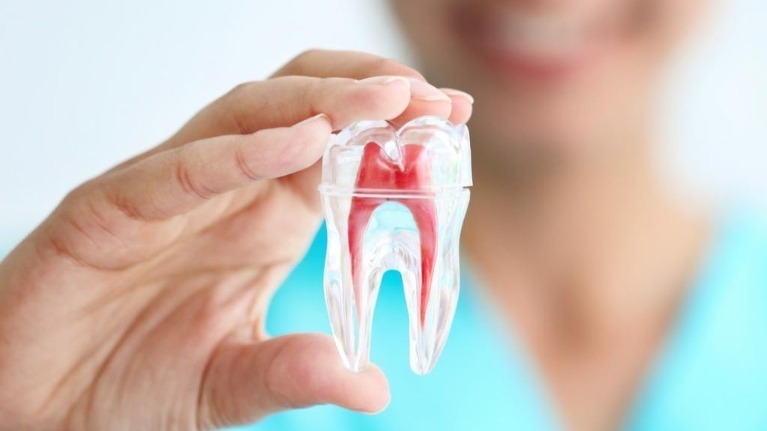Root Canal Treatment
During root canal treatment, the nerve is fully innervation by applying local anesthesia.
Generally, no pain is felt during root canal treatment. Thanks to the drug gels and modern injection systems, injection applications are performed painlessly. By using an appropriate painkiller at the end of the treatment, it is possible to prevent a few hours of mild sensitivity after treatment.
As a result of the deepening of the decays in the teeth or the impact of the teeth, the pulp tissue (tooth pulp), which gives the tooth its vitality, nourishes and contains its nerves, is damaged and inflamed. Root canal treatment is a procedure performed to treat this type of seriously damaged or inflamed teeth. Treatment involves removing the damaged pulp tissue (dental pulp) of the tooth, cleaning it, cleansing it from bacteria and filling it with filling materials again. The most common causes of such damage to the pulp are cracked or broken teeth, very deep caries or multiple treatments on the same tooth. The term treatment originates from the cleaning of the canals in the tooth roots in the treatment in question.
Retreatment – Repeat Treatment
Previously applied may fail for many reasons. In today’s endodontic practice, re-treatment of the root canal is frequently applied. This is called retreatment, revision, or renewal of treatment. The most important factor affecting the success of retreatment treatment is the technological devices and dental materials used in addition to the knowledge and skills of the physician. The unsuccessful canal treatment is renewed and the tooth is kept in the mouth for a long time.
Resection – Endodontic Surgery
Endodontic Surgery is a method applied to infected teeth that cannot be treated with root canal treatment. If the problem is chronic and a common infection in infected teeth, root canal treatment alone will not be sufficient. In these cases, the part of the tooth in the bone is surgically intervened. Endodontic surgery can also be applied to infected teeth with blocked channels. Endodontic surgery is performed under local anesthesia in the part of the problematic tooth under the gum in the mouth. Endodontic surgery can be applied to unhealed teeth that have previously undergone root canal treatment. In such cases, the infected area is opened and the infected tissue residues are cleaned and closed. Teeth undergoing endodontic surgery are kept under radiological control within certain time periods. In the surgical method, tissues that cause failure depending on the infection status of the tooth and need to be surgically removed are eliminated. Canal treatment is performed before the procedure. In the first 10 days after surgery, the operation area should be cleaned well, and the patient should follow the doctor’s recommendations. Patient-physician collaboration is the most important factor affecting recovery, as in all surgical procedures.


